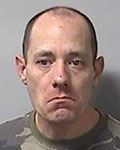New coordinator at Genesee Justice is driven by opportunities for restoration, accountability

However, if the both parties – especially the victim – are willing, it’s worth the effort, says Diana Prinzi, the new coordinator of the Genesee Justice restorative program that is a division of the Genesee County Sheriff’s Office.
“We’re working on our first restorative justice reconciliation meeting in the near future and it’s something I would like to see more of,” said Prinzi, a retired U.S. Immigration and Customs Enforcement supervisor who started in her county post on Jan. 3. “It’s one of the items on my bucket list.”
Prinzi (pictured at right) was hired to replace Catherine Uhly, who retired last February.
The Le Roy native and current resident of Alexander spent 22 years in various capacities with ICE, mostly at the federal detention center in Batavia, before taking a part-time victim’s advocate position at Genesee Justice early last year.
She said she has been doing her best to learn about the various programs that Genesee Justice has to offer, including victim advocacy, offender accountability, DWI conditional discharge, release under supervision and risk assessment.
Being able to “restore” broken relationships is at the heart of Genesee Justice, an innovative approach to navigating the legal system that has been a hallmark of Genesee County for about 40 years.
“We haven’t had any instances of where the victim, offender and a facilitator have gotten together in quite a while,” Prinzi said. “It’s a process that takes place after the fact, after sentencing, where we try to get them back on track; to be able to move forward with their lives, but the victim has to want it.”
A 1986 graduate of Notre Dame High School with a bachelor’s degree in Criminal Justice from Brockport State College, Prinzi said she enjoyed her time as a victim advocate and jumped at the chance to lead the agency, which is located at 14 West Main St.
“I’m excited for the opportunity and feel that the qualifications of the job fit mine pretty well,” she said, noting that she scored well on the Civil Service exam that preceded the interviewing process. “Being in law enforcement, I understand that you have to follow the laws, and I believe that my 15 years of supervisory experience is an asset.”
Prinzi oversees a department that, when fully staffed, has 11 full- and part-time employees – case managers, community service victim’s assistants, victim advocates, DWI conditional discharge specialists, principal clerk and financial analyst. Currently, three part-time positions are open.
Genesee Justice serves the community in a number of ways, she said.
“We offer victim advocacy – services to crime victims, such as help with court proceedings, orders of protection, compensation claims, emotional support and referrals to other agencies,” Prinzi said. “Then there is community service, where a person’s sentence might include working at a nonprofit agency with complete oversight by Genesee Justice.”
Services to victims are provided at no charge, Prinzi said, adding that the department interacts with 450 to 500 persons annually.
She said the agency’s first-time DWI offender program has enabled those charged with driving under the influence the chance to complete several requirements over a year to possibly gain a conditional discharge, with a judge having final say in the matter.
Prinzi said the state’s bail reform has affected, to some extent, other programs such as pre-trial release (RUS) and risk assessment.
“Bail reform is being debated (by state legislators) and we’re still reviewing and researching that,” she said.
Outside of the office, she said that she and her husband, Samuel, look forward to spending time with their five grown children and one grandchild, and enjoy hiking and walking outdoors.
For more information about Genesee Justice, go to www.co.genesee.ny.us/departments/geneseejustice/index.php.
Photo by Mike Pettinella.












